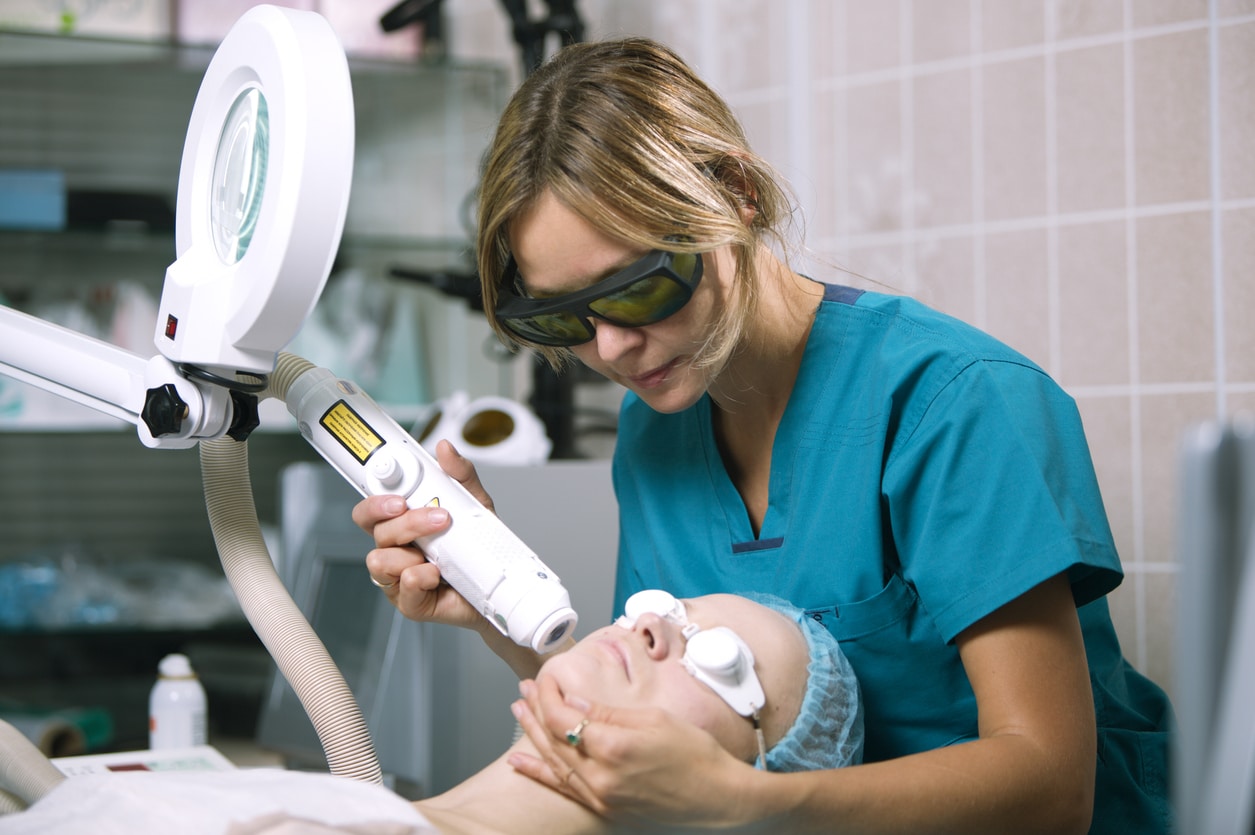Skin resurfacing is a cosmetic procedure used to improve the appearance of skin. During resurfacing, the thin layers of skin are removed, leaving a smoother, tighter appearance.
What Are the Different Types of Skin Resurfacing?

The three main types of skin resurfacing include:
- Laser resurfacing. Laser resurfacing uses concentrated beams of light to remove damaged layers of skin. It removes the outer layer (epidermis) of skin while heating the underlying skin to promote collagen growth—resulting in smoother, firmer skin.
- Chemical peel. Chemical peels are applied to the skin to remove the top layers. The skin then grows back smoother. Some chemical peels are mild, requiring multiple applications to achieve the desired result, while others are caustic and deeply penetrating.
- Dermabrasion. Dermabrasion uses a rapidly rotating device, similar to sandpaper, to remove the outer layer of skin. The skin then grows back smoother.
Benefits of Skin Resurfacing
A few benefits of skin resurfacing include:
- Improved texture
- Reduced fine lines and wrinkles
- Minimized scars
- Stimulated collagen production
- Minimized appearance of sun damage and discoloration
What To Expect During Skin Resurfacing?
Skin resurfacing will vary depending on the type and targeted area. A few things to expect include:
- Preparation. Your provider may recommend stopping certain medications or skin care products before resurfacing.
- Procedure. The duration and discomfort levels may vary depending on the type of resurfacing. For example, laser resurfacing is frequently compared to the feeling of a rubber band snapping against your skin while chemical peels may only feel like a slight sunburn. In some cases, topical anesthetics may be applied prior to resurfacing.
- Recovery. Redness, swelling and peeling are common during the healing process. As your skin recovers, it is vital to follow post-care instructions and stay out of the sun for optimal results.
- Results. You can expect to see improvements after your skin has healed.
If you are considering skin resurfacing, talk to your provider about the specific areas you wish to target. Your provider can help you find a suitable resurfacing method and set expectations. To learn more about how skin resurfacing can help you, contact the Facial Plastics Center at ENT of Athens today to make an appointment with one of our specialists.